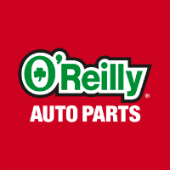-
Welcome to Auto Parts Forum
Whether you are a veteran automotive parts guru or just someone looking for some quick auto parts advice, register today and start a new topic in our forum. Registration is free and you can even sign up with social network platforms such as Facebook, X, and LinkedIn.
Why OEMs Are Investing In Lithium-Ion Battery Recycling
-
Similar Topics
-
By Dorman Products
Why testing modern sealed batteries takes more than hydrometers and refractometers
-
By Clifford Auto Parts
If you’ve ever looked into car engine management systems, you’ve probably come across the terms ECM (Engine Control Module) and ECU (Engine Control Unit). While these terms are often used interchangeably, they are not exactly the same. Understanding the difference between ECM and ECU can help you diagnose vehicle issues, make informed repair decisions, and ensure your car runs efficiently.
At Clifford Auto Parts, we specialize in high-quality ECMs and ECUs, providing affordable replacements with free shipping across the USA. In this blog, we’ll break down the key differences between ECMs and ECUs, their roles in vehicle performance, and how to know when it’s time to replace them.
✅ What is an ECU (Engine Control Unit)?
The Engine Control Unit (ECU) is a broad term referring to any electronic module that controls various aspects of a vehicle's operation. Modern cars often have multiple ECUs that manage different systems in the vehicle, such as:
✔️ Engine Management (ECM) – Controls fuel injection, ignition timing, and emissions.
✔️ Transmission Control (TCM) – Regulates automatic gear shifting.
✔️ Brake Control (ABS Module) – Manages anti-lock braking systems.
✔️ Body Control (BCM) – Controls lighting, windows, and climate systems.
The ECU acts like the brain of the car, receiving signals from sensors and making real-time adjustments to optimize performance, efficiency, and safety.
✅ What is an ECM (Engine Control Module)?
The Engine Control Module (ECM) is a specific type of ECU dedicated to managing the engine’s performance. It ensures the correct amount of fuel, air, and spark is delivered to keep the engine running smoothly.
A faulty ECM can cause serious performance issues, including:
✔️ Check Engine Light Staying On
✔️ Engine Stalling or Misfiring
✔️ Poor Fuel Efficiency
✔️ Starting Problems
At Clifford Auto Parts, we offer tested and warrantied ECM replacements for Ford, Dodge, Jeep, Chrysler, and more, ensuring a plug-and-play experience for vehicle owners across the USA.
✅ How Do ECM and ECU Work Together?
While the ECM specifically controls the engine, it still communicates with other ECUs in the car. For example:
✔️ The ECM and TCM (Transmission Control Module) work together to ensure smooth gear shifting.
✔️ The ECM and BCM (Body Control Module) coordinate engine start functions with security and lighting systems.
✔️ The ECM interacts with the ABS Module to adjust power delivery during emergency braking situations.
Modern cars rely on these interconnected systems to provide seamless driving performance.
✅ When Should You Replace Your ECM or ECU?
If your vehicle is experiencing engine trouble, transmission issues, or persistent warning lights, you may need to replace the ECM or a specific ECU. Some warning signs include:
✔️ Check Engine Light stays on, even after repairs
✔️ Sudden drops in fuel efficiency
✔️ Rough idling, stalling, or misfires
✔️ Transmission shifts erratically or gets stuck in a gear
✔️ Car fails to start despite a working battery
Ignoring these symptoms can lead to costly repairs. The best way to diagnose the problem is to use an OBD-II scanner to check for ECU or ECM-related fault codes.
✅ Why Choose Clifford Auto Parts for ECM & ECU Replacements?
At Clifford Auto Parts, we specialize in providing high-quality, reliable ECM and ECU replacements that fit seamlessly into your vehicle. Here’s why thousands of vehicle owners trust us:
✔️ Wide Selection: We offer ECMs & ECUs for Ford, Jeep, Dodge, Chrysler, and more.
✔️ Lifetime Warranty: All our ECMs come with a lifetime guarantee for peace of mind.
✔️ Fast & Free Shipping: Get your replacement within 3 business days, anywhere in the USA.
✔️ Affordable Pricing: Save hundreds of dollars compared to dealership prices.
✔️ Plug-and-Play Compatibility: Our ECMs are programmed and ready to install.
Don't let a failing ECM or ECU slow you down! Shop today at link hidden, please login to view for top-quality replacements.
✅ Final Thoughts
Understanding the difference between ECM and ECU helps car owners diagnose vehicle problems, make informed repair decisions, and ensure long-term performance. While ECUs control multiple car functions, ECMs specifically manage the engine’s performance.
If you're facing engine issues, poor fuel efficiency, or transmission troubles, it may be time to replace your ECM or another ECU module. At Clifford Auto Parts, we provide tested, warrantied, and affordable ECMs and ECUs to keep your vehicle running like new.
🚗 Need an ECM replacement? Visit link hidden, please login to view today!
📞 Questions? Call (516) 494-7838 for expert assistance.
-





Recommended Posts
Join the conversation
You can post now and register later. If you have an account, sign in now to post with your account.
Note: Your post will require moderator approval before it will be visible.